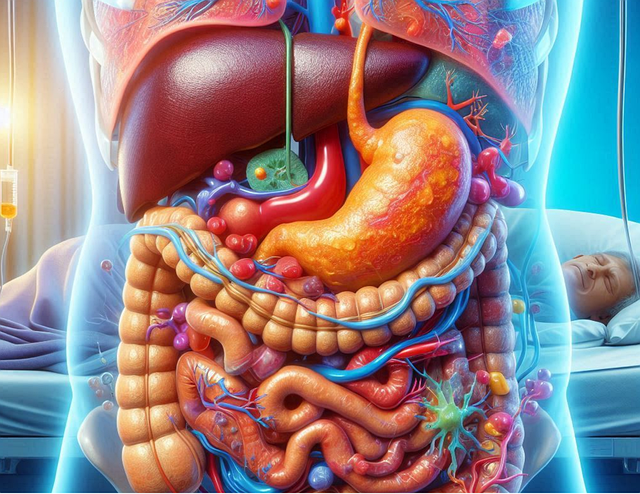Colon cancer, also known as colorectal cancer, is a malignancy that begins in the colon or rectum. It’s among the leading causes of cancer-related deaths worldwide. However, with early detection and appropriate treatment, the prognosis can be significantly improved. This article delves into the symptoms, stages, survival rates, and personal experiences related to colon cancer.
Is Colon Cancer Curable?
The curability of colon cancer largely depends on the stage at which it’s diagnosed:
-
Early Stages (Stage 0 and Stage I): When detected early, colon cancer is highly treatable. Surgical removal of the tumor often leads to a cure.
-
Stage II and III: These stages may require a combination of surgery, chemotherapy, and radiation therapy. The prognosis remains favorable, especially if the cancer hasn’t spread extensively.
-
Stage IV: At this advanced stage, where cancer has metastasized to other organs, treatment focuses on prolonging life and alleviating symptoms. While a complete cure is less likely, some patients achieve remission with aggressive treatment.
Early detection through regular screenings like colonoscopies significantly enhances the chances of a cure.
Recognizing a Healthy Colon
Maintaining colon health is crucial for overall well-being. Indicators of a healthy colon include:
-
Regular Bowel Movements: Consistent and pain-free bowel movements without significant changes in frequency or consistency.
-
Absence of Gastrointestinal Symptoms: Lack of persistent bloating, cramping, or abdominal pain.
-
Healthy Diet and Lifestyle: A diet rich in fiber, fruits, vegetables, and adequate hydration supports colon health.
Identifying Colon Pain
Colon pain typically presents as discomfort in the lower abdomen. It may manifest as cramping, bloating, or sharp pains.Such pain can result from various conditions, including irritable bowel syndrome (IBS), infections, or, in severe cases, colon cancer. Persistent or severe abdominal pain warrants medical evaluation to determine the underlying cause.
Personal Experiences: Early Signs of Colon Cancer
Personal anecdotes highlight the importance of recognizing early symptoms:
-
Elaine Griffin’s Story: At 44, Elaine experienced intense abdominal pain, unintentional weight loss, fatigue, and blood in her stool. Despite no family history, these symptoms led to a stage 2b colon cancer diagnosis. Early intervention and treatment led to her being declared cancer-free in September 2024.
-
Karen Kennerley’s Experience: Karen, 57, initially attributed her fatigue to work stress. Further tests revealed stage 4 bowel cancer. Her journey underscores the subtlety of early symptoms and the need for timely medical consultations.
Stage 1 Colon Cancer Symptoms
In its initial stages, colon cancer may present subtle symptoms:
-
Changes in Bowel Habits: Persistent diarrhea, constipation, or changes in stool consistency lasting more than a few days.
-
Abdominal Discomfort: Cramping, bloating, or mild abdominal pain.
-
Fatigue: Unexplained tiredness as the body diverts energy to combat the tumor.
These symptoms are often overlooked, emphasizing the importance of regular screenings, especially for individuals over 45 or those with a family history of colorectal cancer.
Colon Cancer Survival Rates
Survival rates vary based on the cancer’s stage at diagnosis:
-
Stage I: Approximately 92% of patients live at least five years post-diagnosis.
-
Stage II: Around 85% five-year survival rate.
-
Stage III: Approximately 65% five-year survival rate.
-
Stage IV: Survival rates drop to about 10%, highlighting the critical need for early detection.
Causes and Risk Factors
Several factors increase the risk of developing colon cancer:
-
Age: Individuals over 50 are at heightened risk.
-
Family History: A history of colorectal cancer in immediate family members.
-
Diet: High consumption of red or processed meats and low fiber intake.
-
Lifestyle: Sedentary habits, smoking, and excessive alcohol consumption.
-
Medical Conditions: Chronic inflammatory bowel diseases like Crohn’s disease or ulcerative colitis.
Colon Cancer Symptoms in Women
Colon cancer symptoms in women are similar to those in men but can sometimes be mistaken for gynecological issues:
-
Abdominal Pain: Often confused with menstrual cramps or ovarian problems.
-
Changes in Bowel Habits: Misattributed to dietary factors or stress.
-
Unexplained Weight Loss and Fatigue: Commonly overlooked or attributed to other causes.
Awareness and proactive health screenings are vital for early detection.
Colon Cancer Treatment
Treatment strategies depend on the cancer’s stage:
-
Surgery: Primary treatment for early-stage colon cancer, aiming to remove the tumor and surrounding tissues.
-
Chemotherapy: Utilized post-surgery or for advanced cancers to target residual cancer cells.
-
Radiation Therapy: Often combined with chemotherapy, especially for rectal cancer.
-
Targeted Therapy: Employs drugs that specifically attack cancer cells without harming normal


